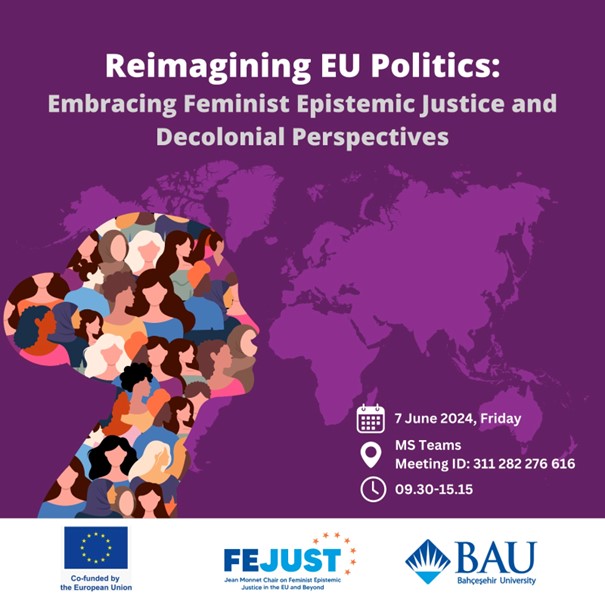
On June 7, 2024, Bahçeşehir University will convene a virtual workshop, "Reimagining EU Politics: Embracing Feminist Epistemic Justice and Decolonial Perspectives," accessible via Microsoft Teams. This event is part of an initiative to expand EU studies by integrating critical perspectives that address epistemic justice and decolonization, enriching the dialogue around EU policies and their global implications.
The workshop will feature three thematic panels throughout the day, each chaired by leading scholars in the field. The first panel, "Epistemic Injustice and EU Policy-Making Inside Out," chaired by Selin Türkeş Kılıç, will explore how feminist epistemic justice can deconstruct Eurocentrism within the EU's gender equality regime. Speakers will delve into the complexities of Europeanisation mechanisms and their impact on policy frameworks, highlighting contributions from academics such as Rahime Süleymanoğlu-Kürüm and Melis Cin.
Following a short break, the second panel, "Gender-Sensitive Issues and Policymaking," will shift focus to how EU policies affect racialized women in academia and the gender dynamics in European agricultural policy. Chaired by Melis Cin, this session promises rigorous analysis from experts like Bruna Cristina Jaquetto Pereira and Markus Holdo, offering insights into how gendered policymaking intersects with issues of environmental justice and corporate accountability.
The day will conclude with the third panel, "Epistemic Injustice Beyond the EU," chaired by Markus Holdo. This session will broaden the geographical scope to examine how feminist epistemic perspectives inform climate justice initiatives and gender activism in non-EU contexts. Discussions will feature case studies on local women's voices in environmental struggles and the role of EU support in gender activism in regions like Tanzania.
This scholarly gathering will not only foster critical discussions but also contribute to a special issue in the Journal of Gender Studies. The aim is to diversify the academic discourse surrounding EU studies by including innovative topics that challenge traditional boundaries and promote a more inclusive understanding of epistemic justice.
This workshop promises to be a significant step toward enriching feminist epistemic justice within and beyond European borders, offering a comprehensive platform for scholarly exchange and debate.
For further details, please refer to the workshop program.
If you want to join our workshop as a participant, please register here: